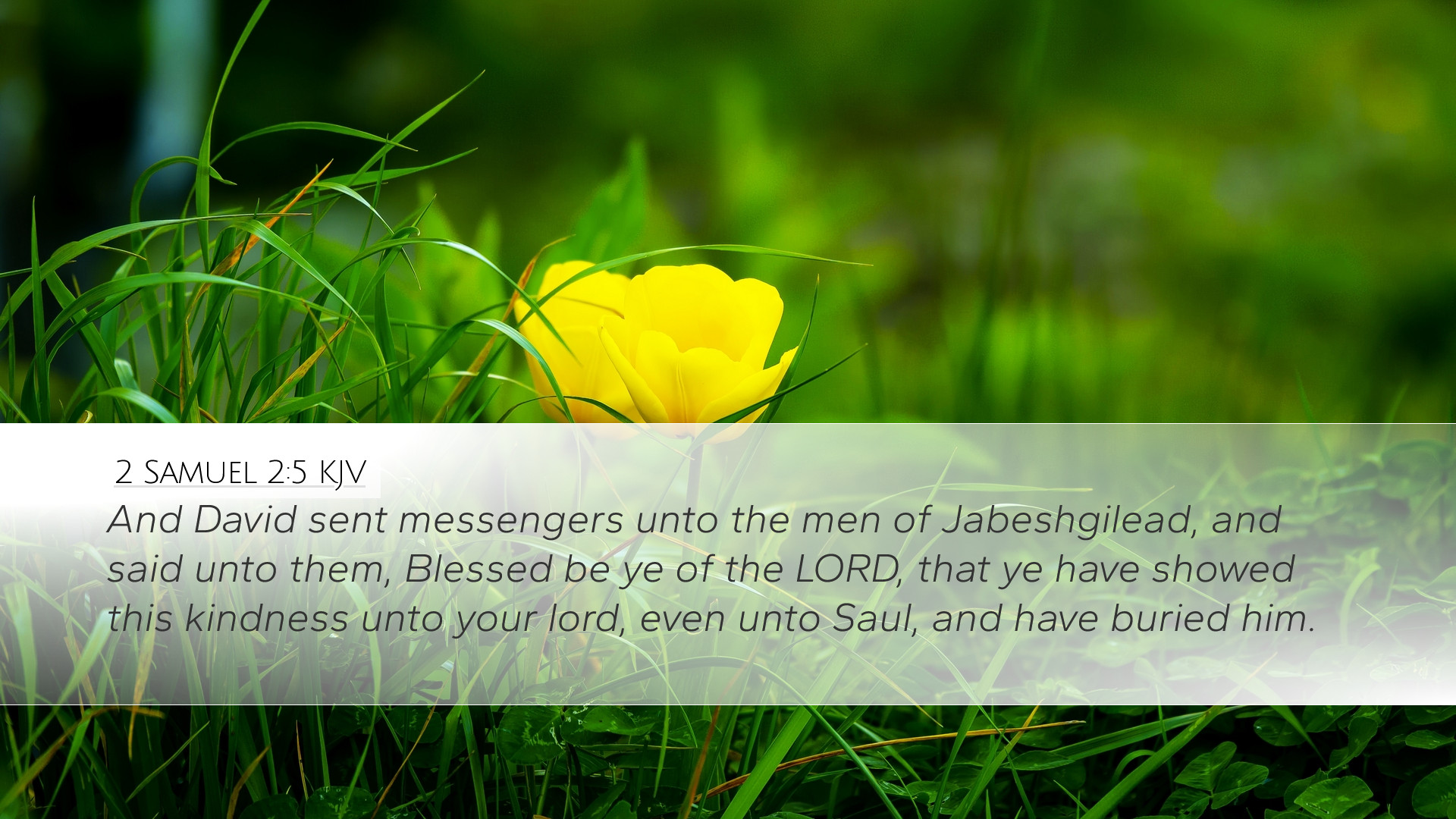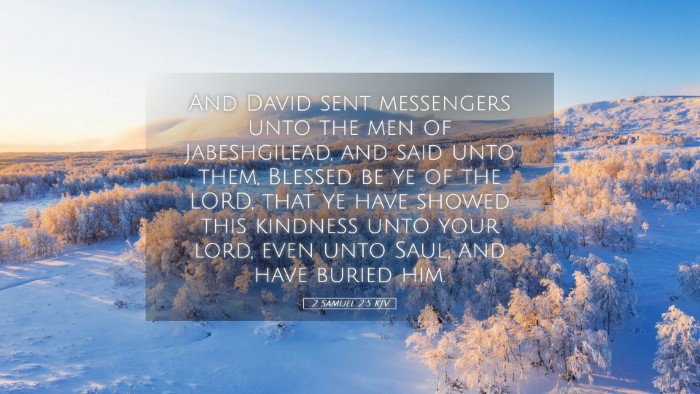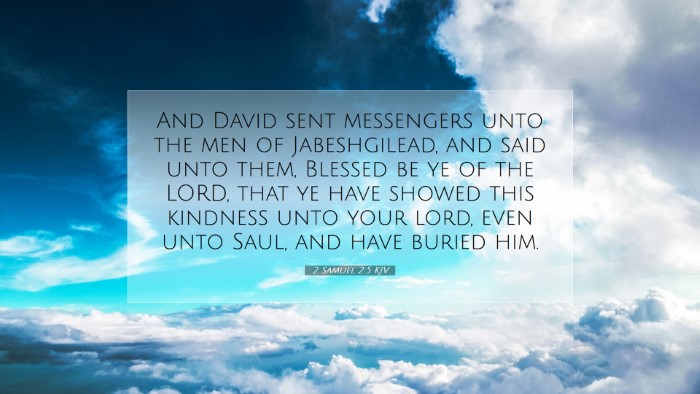Commentary on 2 Samuel 2:5
Verse Text: "And David sent messengers unto the men of Jabesh-gilead, and said unto them, Blessed be ye of the LORD that ye have showed this kindness unto your lord, even unto Saul, and have buried him."
Introduction
2 Samuel 2:5 reveals an important moment in the period following Saul's death and David’s ascendance. This verse not only highlights David's recognition of loyalty but also sets the stage for the political and spiritual dynamics that will unfold in the kingdom of Israel.
Contextual Background
-
Historical Setting:
After the death of Saul, there arose a power vacuum in Israel. David, who had been anointed king by Samuel, now holds a complex position as some still supported the house of Saul.
-
Jabesh-Gilead:
This city had shown extraordinary loyalty to Saul by retrieving his body and burying him, an act not only of respect but of profound allegiance to the fallen king.
Insights from Commentaries
Matthew Henry’s Commentary
Matthew Henry emphasizes the commendable act of the men of Jabesh-Gilead in showing kindness by burying Saul. He points out that this virtue deserves recognition not merely from David but ultimately from God. Henry notes that acts of loyalty, especially in challenging times, reveal true character.
Henry also suggests that David’s act of sending messengers signifies his intent to unify the kingdom and seek the goodwill of those loyal to Saul, thereby tactically positioning himself as a benevolent leader.
Albert Barnes’ Notes
Albert Barnes elaborates on the importance of burial in ancient cultures. He indicates that burial rituals reflect respect for the dead, and by honoring Saul, the men of Jabesh-Gilead demonstrated their loyalty. Barnes interprets David's message as not just politeness but strategic diplomacy.
He asserts that David’s acknowledgment of their kindness laid groundwork for future alliances and goodwill among the tribes of Israel. This gesture was significant in solidifying David’s emerging leadership in a period filled with uncertainty.
Adam Clarke’s Commentary
Adam Clarke draws attention to the emotional and theological significance of David’s words. Clarke highlights that despite Saul’s failures, David still honors him, suggesting a deeper principle of respect for God’s anointed. This points to a perspective that recognizes the complexities of leadership and the weight of covenant loyalty.
Clarke also reflects on the idea of showing kindness to those in positions of authority and the duty of leaders to remember acts of loyalty, whether from friends or enemies. His analysis encourages a view of leadership characterized by grace and remembrance.
Theological Reflections
-
Loyalty and Honor:
This passage invites contemplation on loyalty, highlighting that acts reflecting faithfulness must be acknowledged. For pastors and theologians, it raises the question of how respect is given to those who have led, even in their flaws.
-
The Nature of Leadership:
David’s response to the second group of Israelites underscores a model of leadership that seeks to build bridges rather than divide. This serves as an imperative for current and aspiring leaders to practice humility and honor those who have gone before them.
Application for Today
The fidelity displayed by the men of Jabesh-Gilead and David’s response serves as a rich source of application for modern believers:
- Recognizing Kindness: It is critical for leaders and congregations alike to acknowledge the acts of kindness within their communities. In an era of individualism, highlighting communal support strengthens relational bonds.
- Historical Remembrance: Churches and communities should celebrate their history and those who have paved the way, acknowledging both wisdom and failings, which is part of the spiritual journey.
- Grace in Leadership: Reflecting on David’s approach encourages leaders to act with integrity, humility, and an awareness of God’s sovereignty in leadership dynamics.
Conclusion
2 Samuel 2:5 not only captures a significant moment in the transition of leadership in Israel but also offers profound insights into faithfulness, leadership, and the importance of recognizing loyalty. For scholars, pastors, and students of the Bible, it serves as a reminder of the values that should guide our interactions and the way we remember those who have influenced our spiritual journey.


